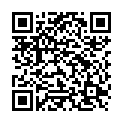|
|
|
| Module code: MST.IPW |
|
|
2PA (2 hours per week) |
|
2 |
| Semester: according to optional course list |
| Mandatory course: no |
Language of instruction:
German |
Assessment:
Project with presentation, graded
[updated 05.06.2025]
|
EE-K2-538 Energy system technology / Renewable energies, Bachelor, ASPO 01.04.2015
, semester 5, optional course, engineering, course inactive since 14.03.2018
MAB.4.2.1.12 (P400-0002) Mechanical and Process Engineering, Bachelor, ASPO 01.10.2013
, semester 3, optional course
MST.IPW (P400-0002) Mechatronics and Sensor Technology, Bachelor, ASPO 01.10.2012
, optional course, non-technical, course inactive since 07.10.2015
MST.IPW (P400-0002) Mechatronics and Sensor Technology, Bachelor, ASPO 01.10.2019
, optional course, non-technical
MST.IPW (P400-0002) Mechatronics and Sensor Technology, Bachelor, ASPO 01.10.2020
, optional course, non-technical
PIBWN18 Applied Informatics, Bachelor, ASPO 01.10.2011
, semester 5, optional course, not informatics specific
WIBASc-525-625-FÜ31 Industrial Engineering, Bachelor, ASPO 01.10.2013
, semester 5, optional course, general subject
WIB21-WPM-I-700 (P400-0002) Industrial Engineering, Bachelor, ASPO 01.10.2021
, semester 5, optional course, general subject
MST.IPW (P400-0002) Mechatronics and Sensor Technology, Bachelor, ASPO 01.10.2011
, optional course, non-technical, course inactive since 07.10.2015
Suitable for exchange students (learning agreement)
|
30 class hours (= 22.5 clock hours) over a 15-week period.
The total student study time is 60 hours (equivalent to 2 ECTS credits).
There are therefore 37.5 hours available for class preparation and follow-up work and exam preparation.
|
Recommended prerequisites (modules):
None.
|
Recommended as prerequisite for:
|
Module coordinator:
Prof. Dr. Marco Günther |
Lecturer: Prof. Dr. Marco Günther
[updated 01.10.2020]
|
Learning outcomes:
During this module, students will practice:
- all phases of systematic product development and
- the presentation of their results in an oral presentation and a written report.
In a linguistically, socially, and geographically unfamiliar environment, students will learn how to
- solve a problem under pressure within a given time frame and collaboratively with other team members.
- work efficiently.
- recognize and use other team members’ skills and competence.
- stucture a task.
- assign subtasks to team members according to their skills.
- collect and evaluate information quickly.
- utilize the knowledge and skills of group members from other departments.
- being an effective member of a diverse group and learning about different methods and approaches.
[updated 05.06.2025]
|
Module content:
During this intensive project week, teams of up to seven international students from different universities, nationalities, degree programs, and semesters will work together at the htw saar or at one of our partner universities to solve a practical project task set by a company or an application-oriented research and development institute.
Based on the project task presented by a company representative, students will go through all the essential steps of product development:
- Developing ideas
- Evaluating ideas
- Developing a product
Students must present their final product design to the competing teams, professors, and company representatives. In addition to the presentation, they must also write a project report.
[updated 05.06.2025]
|
Teaching methods/Media:
Supervised project work
[updated 10.11.2016]
|
Recommended or required reading:
A reading list will be provided for each project group.
[updated 13.09.2018]
|


